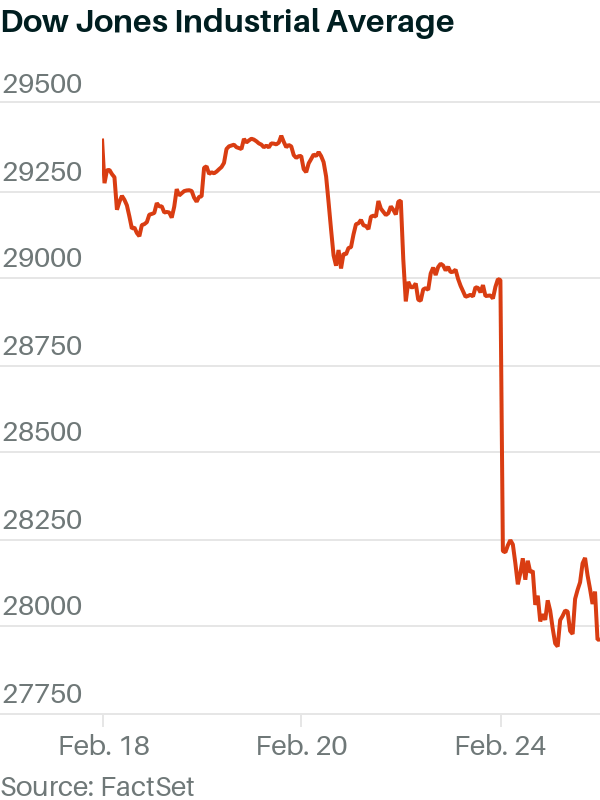Understanding Dow Futures: Insights into the Stock Market Dynamics
The stock market has always been a critical area of focus for investors, analysts, and business leaders alike. Recently, the topic of Dow futures has gained increasing attention among these groups. As we delve into the dynamics influencing the Dow Jones Industrial Average (DJIA) and its futures, it is essential to grasp what these indicators signify for the stock market overall.
What Are Dow Futures?
Dow futures are contracts that allow traders to speculate on the future value of the Dow Jones Industrial Average. They serve as financial derivatives that provide insight into where the stock market might be headed before the opening bell. By monitoring Dow futures, investors can gauge the market’s sentiment overnight and prepare for potential volatility when markets open.
As of recent reports, including a notable article from Barron’s, there have been significant fluctuations in Dow futures that reflect broader economic concerns. For example, amid expectations of a steep drop in the DJIA, futures indicated a potential decline of approximately 800 points. Understanding these movements can be crucial for strategic planning and risk management in business operations.
The Importance of Monitoring Dow Futures
For HR professionals and business leaders, keeping an eye on Dow futures is not merely a matter of curiosity; it is a matter of necessity. Fluctuations in the stock market can influence various business decisions, from hiring and investment strategies to budgeting and financial forecasting.
Here are some reasons why monitoring Dow futures is critical:
- Market Sentiment: Dow futures are an early indicator of market sentiment. A significant drop in futures can suggest investor pessimism, prompting businesses to adopt a more cautious financial approach.
- Strategic Planning: Understanding potential market movements helps businesses to adjust their strategies accordingly. For instance, if the futures reflect a downward trend, companies might reconsider their expansion plans or hiring initiatives.
- Risk Management: Being aware of potential market changes allows businesses to manage risks more effectively. Having the foresight to react quickly can mitigate financial losses.
Analyzing Market Trends through Dow Futures
The fluctuations in Dow futures can often be traced back to various economic indicators, geopolitical developments, and corporate earnings reports. For instance, when corporate earnings reports exceed expectations, Dow futures typically rise as investor confidence grows.
Conversely, concerns regarding inflation, interest rates, and global economic stability can lead to drops in Dow futures. The interplay of these factors creates complex market dynamics that HR professionals and business leaders must navigate.
Historical Trends and Their Impact
Examining historical trends helps in understanding current movements in Dow futures. According to the Barron’s article, historical data suggests that significant drops in the DJIA often precede a recovery phase. This historical perspective provides valuable context for current events in the stock market.
For instance, during economic downturns or market shocks, it is common to observe sharp declines in the DJIA, similar to the potential 800-point drop noted. Understanding how markets have reacted in similar situations prepares business leaders for what might come next.
Practical Implications for Businesses
So, how can businesses respond effectively to shifts indicated by Dow futures? Here are several strategies:
- Flexibility in Operations: Businesses should maintain flexibility in their operations to adapt to changing market conditions quickly. This may involve scaling back projects or adjusting sales forecasts based on market indications.
- Financial Reserves: Establishing financial reserves can provide businesses with a buffer during economic downturns. This strategy can help ensure operational stability even when market conditions are unfavorable.
- Staying Informed: Accessing reliable news sources and analysis regarding stock market movements and trends is essential. Tools that automate data gathering and analysis can enhance the decision-making process, enabling businesses to take informed, timely actions.
Conclusion
Monitoring Dow futures offers essential insights into the current state of the stock market and can significantly influence business strategies. By understanding the indicators and preparing for potential market shifts, HR professionals and business leaders can navigate the complexities of today’s economic landscape more effectively.
In summary, keeping a pulse on Dow futures can provide critical foresight, helping businesses position themselves advantageously in the face of uncertainty. With strategic foresight, companies can mitigate risks and capitalize on opportunities, ultimately leading to more resilient business operations in an ever-changing market.








